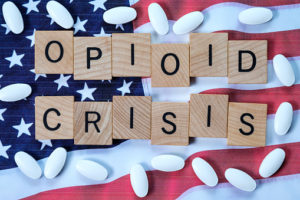Kleptomania is a rare but serious mental health disorder characterized by the recurrent inability to resist urges to steal items. If left untreated, kleptomania can result in severe emotional, family, work, legal and financial problems.
Kleptomania is a type of impulse control disorder. Those with impulse control disorders have difficulty resisting the temptation to perform an act that is excessive or harmful to themselves or others. In fact, unlike typical shoplifters, people with kleptomania don’t compulsively steal for personal gain. They steal simply because the urge is so powerful that they cannot resist it.
In addition to the inability to resist the urge to steal, those with kleptomania may also exhibit the following symptoms:
- Feeling of increased tension, anxiety or arousal leading up to the theft
- Feeling pleasure, relief or gratification while stealing
- Feeling terrible guilt, remorse, self-loathing, shame or fear of arrest after the theft
- Return of the urges and a repetition of the cycle
Episodes of kleptomania generally occur spontaneously, usually without planning and without help or collaboration from another person. Most people with kleptomania steal from public places, such as stores and supermarkets. Often, the stolen items have no value to the person with kleptomania and the person can afford to buy them. Urges to steal may come and go or may occur with greater or lesser intensity over the course of time.
While the cause of kleptomania is not known, there are several theories suggest that changes in the brain may be at the root of kleptomania, including:
- Low serotonin levels.Serotonin is a naturally occurring brain chemical that helps regulate moods and emotions. Low levels of serotonin are common in people prone to impulsive behaviors.
- Addictive disorders.Stealing may cause the release of dopamine (another neurotransmitter). Dopamine causes pleasurable feelings, and some people seek this rewarding feeling again and again.
- The brain’s opioid system.Urges are regulated by the brain’s opioid system. An imbalance in this system could make it harder to resist urges.
Treatments are available that may help to minimize the urge kleptomaniacs have to steal and live without addiction and shame. This typically involves medications and psychotherapy, or both, sometimes along with self-help groups. However, there is no standard kleptomania treatment, and researchers are still trying to understand what may work best.
If you or someone you love is experiencing symptoms consistent with kleptomania, xx Hospital’s Department of Mental Health and Addiction Services can help. To make an appointment please call 718-670-5562.
All content of this newsletter is intended for general information purposes only and is not intended or implied to be a substitute for professional medical advice, diagnosis or treatment. Please consult a medical professional before adopting any of the suggestions on this page. You must never disregard professional medical advice or delay seeking medical treatment based upon any content of this newsletter. PROMPTLY CONSULT YOUR PHYSICIAN OR CALL 911 IF YOU BELIEVE YOU HAVE A MEDICAL EMERGENCY.


